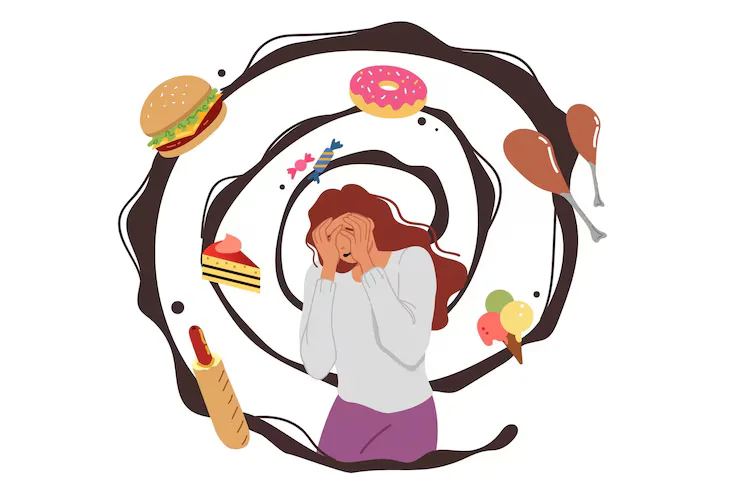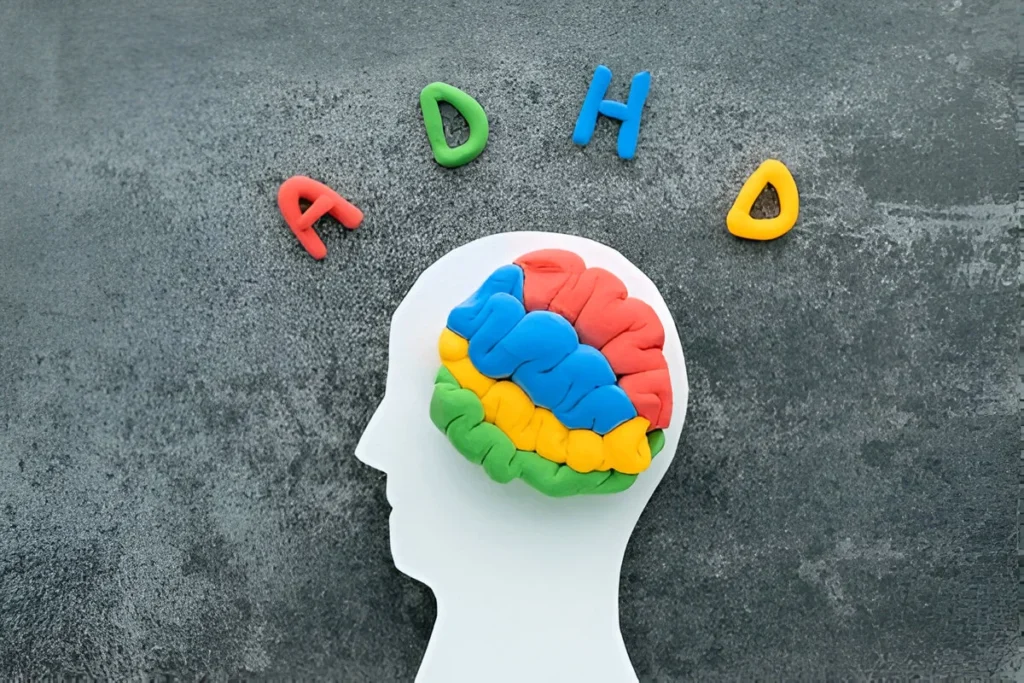-
129, Block-A Bangur Avenue, Mousumi Appartment, Kolkata 700055
129, Block-A Bangur Avenue, Mousumi Appartment, Kolkata 700055

Binge Eating Risks in Children can increase with conditions like ADHD. A reputed counselor can help uncover the psychological roots and guide you with actionable strategies to support kids more effectively.
When parents hear the term “binge eating,” they often associate it with emotional imbalance, poor diet, or unhealthy media exposure. However, one of the most overlooked and under-discussed contributors is Attention-Deficit/Hyperactivity Disorder (ADHD).
Children with ADHD often struggle with impulsivity, emotional regulation, and delayed gratification—factors that are closely linked to binge eating behavior. While food might seem like a comfort mechanism, there’s often a deeper, neuropsychological root that parents and caregivers need to understand.
Let’s explore how ADHD contributes to binge eating risks in children, and more importantly, what families can do about it.

ADHD doesn’t just affect attention—it impacts executive functioning, impulse control, and reward processing. All of these neurological factors intersect with how a child responds to food.
Neurobiologically, children with ADHD have different brain activation patterns, especially in areas controlling self-monitoring and decision-making. Several studies highlight the overlapping symptoms of ADHD and Binge Eating Disorder (BED), including:
Researchers are increasingly linking these patterns to early eating problems that, if left unaddressed, may escalate into full-blown eating disorders by adolescence.
Understanding the early warning signs can help prevent the onset of severe eating issues:

While managing binge eating risks in children with ADHD may seem overwhelming, a combination of awareness, structure, and professional support can make a tremendous difference.
Addressing binge eating in children—especially those with ADHD—often requires a multidisciplinary approach. This may include:
If you’re concerned about your child’s behavior, consulting with an experienced mental health expert can make the process less daunting. It’s essential to connect with a trusted counselor who understands the complex dynamics between ADHD and eating behaviors.

Q. Can ADHD medication cause binge eating in kids?
Not directly. However, appetite suppression from medication may lead to rebound hunger, causing kids to overeat later in the day. Always consult your child’s pediatrician or psychiatrist to adjust dosages if necessary.
Q. At what age can binge eating start in children?
Some children as young as 6 or 7 show early signs of emotional eating, especially if ADHD is also present. Early detection is key.
Q. What’s the difference between picky eating and binge eating?
Picky eaters may avoid certain foods, while binge eating involves consuming large amounts of food—often quickly and in secret—even when not hungry.
Q. How can schools help?
Schools can incorporate routine snack times, educate children on healthy eating, and be mindful of food-related bullying or body shaming that might affect a child’s self-image.
Q. Is binge eating in kids a phase or a disorder?
While occasional overeating is normal, consistent patterns of binge eating signal a deeper issue. The earlier it’s addressed, the better the outcome.
ADHD and binge eating aren’t isolated struggles—they are interconnected challenges that deserve early recognition and thoughtful intervention. The brain’s wiring plays a pivotal role in a child’s relationship with food, and when emotional triggers go unnoticed, it can spiral into lifelong habits.
As caregivers, the goal is not perfection—but progress. Whether it’s building structure, creating an emotionally safe space, or seeking the right counseling support, your child’s mental and physical well-being can improve dramatically with the right steps.
If you suspect your child may be struggling silently, don’t delay seeking help from a trusted, child-focused mental health expert. Mindful care, emotional validation, and expert guidance can rewrite your child’s story—one meal, one thought, and one kind conversation at a time.